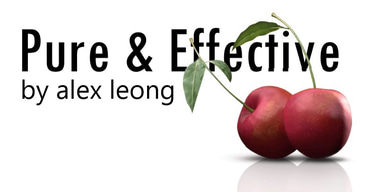Licorice root isn’t just about adding a touch of sweetness to herbal blends—it's a real powerhouse when it comes to fighting inflammation! This ancient herb packs a punch with its natural compounds, like triterpenes and flavonoids, which help reduce inflammation by targeting pesky mediators like TNF and free radicals. It’s been used for centuries in TCM to soothe digestive issues and ease coughs, and modern science backs up its benefits with tons of research.
Read more: PMC
Licorice isn’t just a sweet treat; it’s been a staple in traditional medicine for its impressive anti-inflammatory powers! This herb's triterpenes and flavonoids are the real stars, helping to fight inflammation by reducing harmful mediators like TNF and PGE2. However, be cautious—licorice can mimic hormones in the body, potentially causing high blood pressure if consumed in large amounts over time. So while it’s great for soothing inflammation, keep an eye on how much you’re enjoying.
Read more: PMC
Ever wondered why licorice is such a big deal in traditional Chinese medicine? This herb isn't just for sweetening up teas—it's a superstar when it comes to mixing things up in herbal formulas! Licorice is known as a "guide drug" in TCM, meaning it helps other herbs work better together and keeps them from causing too many side effects. It does this by tweaking how our bodies handle drugs, like changing how certain enzymes and transport proteins work. So next time you sip on a herbal blend with licorice, remember it's the unsung hero behind the scenes!
Read more: ResearchGate
Did you know licorice might have a secret superpower in the fight against COVID-19? This sweet herb, known as Gancao in TCM, is getting some serious buzz for its potential to battle the virus. Research suggests licorice could help by blocking viral replication, easing inflammation, and boosting immunity. Plus, it might soothe those pesky coughs and respiratory issues that come with the illness. While it’s not a cure-all and can have side effects if overused, its role in traditional remedies is definitely worth a closer look.
Read more: Sage
Ever wondered if licorice can do more than just sweeten your tea? This herb's got some serious antiviral and antimicrobial chops! With over 20 triterpenoids and nearly 300 flavonoids, licorice is a powerhouse. Key compounds like glycyrrhizin and glycyrrhetinic acid are known to combat viruses and bacteria, while flavonoids help tackle infections by disrupting bacterial growth and toxin production. Plus, licorice is making waves in medicine with new preparations that pack even more punch against diseases.
Read more: PMC
Licorice isn't just a sweet treat—it's packed with powerhouse compounds called chalcones that do some serious heavy lifting! Found in licorice's roots, these chalcones bring a cocktail of benefits, from fighting cancer and inflammation to boosting your immune system. Think of them as nature's multi-taskers, working hard to keep you healthy. Whether it’s isoliquiritigenin sparking up cell defenses or licochalcone A kicking inflammation to the curb, these natural goodies pack a punch.
Read more: Wiley
A recent study tested licorice root on 60 women with nonalcoholic fatty liver disease (NAFLD) and found some promising results. Over 12 weeks, those taking 1,000 mg of licorice root daily saw significant improvements in liver enzymes, insulin levels, and liver fat compared to those on a placebo. So, if you're managing NAFLD and need an extra boost alongside diet and lifestyle changes, licorice root might be worth a try!
Read more: PubMed
If you’re looking to give your liver a little extra love, licorice root might be just what the doctor ordered! A recent review and meta-analysis found that glycyrrhizic acid, a key compound in licorice, helps combat liver fibrosis by reducing markers like TGF-β1 and hypdroxyproline. It works its magic by blocking the TGF-β1 signaling pathway, which is a major player in liver damage. This means licorice could help restore liver health and tackle fibrosis more effectively than other treatments.
Read more: SciELO
Meet 18β-glycyrrhetinic acid (18β-GA), the star compound from licorice root that's got some serious liver-protective superpowers. Recent research has shown that 18β-GA can help guard against liver damage by fighting inflammation and oxidative stress, making it a promising hero for tackling liver woes. While it's still mainly a lab superstar due to its solubility issues, its potential is huge, especially for those looking for new liver health allies.
Read more: Nature
Research on aging rats revealed that this sweet root helps combat brain aging by reducing oxidative stress and preventing cell death. Licorice extract improved memory and learning, tackled oxidative damage, and balanced out those pesky cholinergic system issues.
Read more: RSC
Licorice isn’t just for candy—its total flavonoids and liquiritin are making waves as natural antidepressants! Research shows that these compounds can lift spirits by tackling stress, boosting brain plasticity, and protecting nerve cells. They work by balancing hormones, enhancing mood-related neurotransmitters, and even reducing inflammation. Plus, they’re pretty good at fending off those pesky free radicals that contribute to depressive symptoms.
Read more: ScienceDirect
Imagine protecting your brain from damage like a superhero with licorice! A study showed that this sweet root, when given as a pretreatment, helps shield the brain from ischemia-induced damage. In mice, licorice’s magic reduced brain injury and blocked harmful protein activation that usually happens during a stroke. By upregulating protective proteins and reducing harmful ones, licorice showed promise as a brain defender.
Read more: LiebertPub
Think herbal remedies might be the secret to tackling polycystic ovary syndrome (PCOS)? A review of studies reveals that plants like aloe vera and chamomile can boost fertility, while Vitex agnus-castus helps reduce unwanted hair by cutting down testosterone levels. Liquorice, ginseng, and cinnamon team up to manage diabetes-related issues from PCOS, and fennel does its part by tweaking estrogen levels. Overall, these natural solutions show promise in easing PCOS symptoms with fewer side effects and a bit of patience.
Read more: PMC
Return to:
